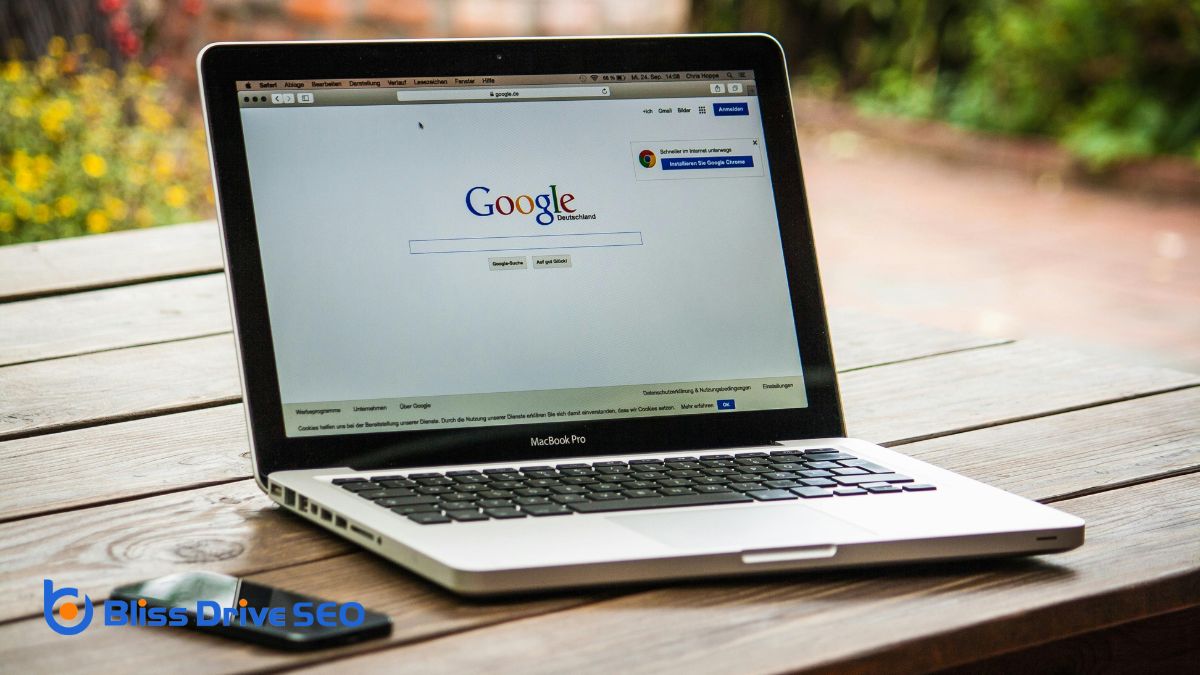Digital Marketing Services
Learn More About Us

You're probably wondering how to boost your business's presence in local search results. Start with a solid foundation by claiming and optimizing your Google My Business listing. Accurate, up-to-date information is key. But that's just the beginning. Have you thought about how local keywordsWords or phrases that users type into search engines to find information. can enhance your website content? And what about building local citations? These strategies might seem straightforward, but there's more to it than meets the eye. Curious about how you can encourage customer reviews and leverage local content to your advantage? There's a lot more to uncover in the field of Local SEOOptimization strategies aimed at improving a website’s visibility in local search results..
To effectively boost your local SEO, optimizing your Google My Business (GMB)A tool for businesses to manage their online presence across Google, including Search and Maps. profile is vital. Start by claiming your business if you haven't done so already. It's essential because it gives you control over the information potential customers see. Confirm your business name, address, and phone number (NAP) are accurate and consistent with your website and other online directories. This uniformity helps search engines trust your information, which enhances your local ranking.
Include a detailed business description that highlights what makes your business unique. Use clear, succinct language to communicate your services and values. Upload high-quality photos of your business, products, and team. Visual contentImages, videos, and other visual elements used to engage users and improve conversion rates. can greatly influence how potential customers perceive your business, making them more likely to visit you.
Regularly update your GMB profile with posts about special offers, events, or news. Engaging with your audience through these updates can enrich your visibility. Encourage satisfied customers to leave positive reviews and be sure to respond to them. Engaging with reviews shows that you value customer feedbackInformation provided by customers about their experience with a product or service, used to improve ..., which can build trust and credibility. By focusing on these elements, you'll enhance your local SEO and attract more local customers.

To boost your local SEO, start by identifying location-based terms that resonate with your target audience.
Focus on optimizing keyword placement within your website's content, meta tagsHTML tags that provide information about a web page to search engines and visitors., and URLs to guarantee search engines recognize your local relevance.
With the right keywords in the right places, you'll attract more local traffic and improve your visibility.
When you're diving into local SEO, identifying location-based terms is essential for attracting nearby customers. You'll want to focus on keywords that incorporate your specific area, like your city or neighborhood. This helps search engines know where your business is and who should see your content. Start by thinking about how people might search for services or products you offerThe specific product or service being promoted by affiliates. in their area. Consider the terms they might use to find a business like yours.
To effectively identify location-based terms, follow these steps:
Once you identify these terms, you'll be better positioned to connect with local searchers who are more likely to become customers.
Although identifying location-based terms is important, optimizing keyword placement is equally significant for boosting your local SEO efforts. You've got your local keywords, but where you place them makes a big impact.
Start by incorporating them naturally into your website's meta titles and descriptions. These are the initial things search engines and users see, so make sure they're compelling and relevant.
Next, weave your local keywords into the headings and subheadings of your content. This helps both search engines and users understand the context of your content. It's vital to maintain a natural flow and avoid keyword stuffingOverloading a page with keywords to manipulate search engine rankings., which can harm your rankingsThe position at which a website appears in the SERP..
Your website's URL structure is another area to optimize. Including local keywords in your URLs can enhance your visibility. For instance, if you're a bakery in Austin, a URL like "yourbakery.com/austin-cakes" is advantageous.
Don't forget about alt textDescriptions added to images to help search engines understand the content of images. for images. Use local keywords to describe your images, providing additional context for search engines. Lastly, consider your internal links. Link to other pages on your site using anchor textThe clickable text in a hyperlink, important for SEO as it provides context for the linked page. with local keywords. This enhances your site's overall SEO by demonstrating to search engines the relevance and connection between your pages.

Local mentions are vital for enhancing your business's visibility in search engine results, especially for location-based searches. Fundamentally, they involve listing your business's name, address, and phone number (NAP) on various online directories. This uniform information helps search engines validate your business's legitimacy and relevance to local search queries.
So, how do you effectively build local mentions?
To boost your local SEO efforts, actively seek out and encourage customer reviews on platforms like Google, Yelp, and FacebookA social networking site where users can post comments, share photographs, and links to news or othe.... Reviews play an essential role in how search engines rank your business in local search results. They provide social proofThe influence that other people’s actions have on one's own behavior, often seen in likes, shares,..., showing potential customers that others trust and recommend your business. By accumulating positive reviews, you're not just enhancing your reputation; you're also improving your visibility in local searches.
Start by making it easy for customers to leave reviews. After a successful transaction or service, send a follow-up email with direct links to your review profiles. Make sure to express gratitude and politely ask for their feedback. Don't hesitate to remind them of the influence their reviews have on your business growth.
Respond to reviews, both positive and negative, promptly and professionally. Acknowledging feedback shows you value customer opinions and are committed to improving your services. This interaction can build stronger relationships and encourage more people to share their experiences.
Customer reviews greatly boost your business's credibility and visibility, but they're only part of the equation for local SEO success. You must also optimize for mobile, as more people search for businesses using their phones. A mobile-friendly site guarantees you don't lose potential customers due to slow loading times or difficult navigation.
To enhance your mobile optimizationDesigning and formatting web content to ensure it performs well on mobile devices. strategy, focus on these three key elements:

Your community's unique character can be your business's secret weapon when you leverage local content for SEO. By tapping into local culture, events, and news, you can create content that resonates with your audience and boosts your visibility in local search results.
Start by identifying local topics that your customers care about. This could be anything from a popular local festival or a charity event to a trending news story.
Create blog posts, videos, or social media updates that tie your business to these local happenings. Use local keywords naturally within your content to improve its relevance for local searches. Mentioning neighborhood names, landmarks, or events can help search engines associate your business with the local area.
Don't forget to engage with local influencers or collaborate with other local businesses to amplify your reach. Share their content and tag them in your posts. This not only builds goodwill but also increases the chances of your content being shared, expanding your visibility.
Being an active participant in your community and reflecting that in your content shows authenticity, which is something search engines and customers both value highly.
To boost your local SEO, start by claiming and optimizing your Google My Business listing, verifying all details are accurate. Use local keywords in your content and build local citations on relevant directories. Encourage customer reviews and confirm your site is mobile-friendly. Leverage local content and collaborate with local influencers to strengthen your presence. Engage authentically with your community to demonstrate reliability. By focusing on these strategies, you'll improve your visibility and attract more local customers.
